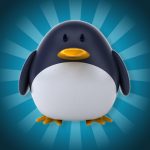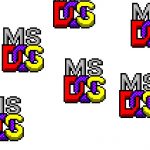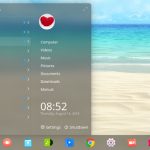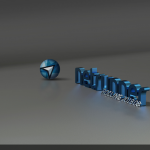Mageia 6.1 Linux distribution now available

While many people are familiar with popular Linux distributions like Ubuntu, Fedora, and Mint, there are far more open source operating systems available. There are probably too many, but I digress. Please know, just because a distro isn't very well known, doesn’t mean it's bad.
One such quality Linux distro that isn't super popular is Mageia. It is a fork of the once wildly popular Mandriva operating system. Today, Mageia 6.1 becomes available for download. It features LTS Linux kernel 4.14 and updated Nvidia drivers.
Microsoft re-open-sources early versions of MS-DOS on GitHub

Back in 2014, Microsoft gave the source code for MS-DOS 1.25 and MS-DOS 2.0 to the Computer History Museum. Now -- in a move it describes as "re-open-sourcing" -- the company has pushed the code to GitHub for all to see.
Dating from mid-1983, the source code may moisten the eyes of anyone who remembers the days of text-based operating systems, and it gives an interesting glimpse into the world of software development a few decades ago.
Tim Berners-Lee launches open source project Solid to decentralize the web and place users in control of data

Tim Berners-Lee is famous for inventing the world wide web, and now he's ready to take things to the next level with an ambitious open source project called Solid. Noting that the web has become "an engine of inequity and division", Berners-Lee wants to restore the power and agency of individuals online and move the balance of power away from "powerful forces who use it for their own agendas".
Solid is not a completely new venture. Berners-Lee has been working on it for some time, and it is built on the existing web as we know it. Where it differs is that "it gives every user a choice about where data is stored, which specific people and groups can access select elements, and which apps you use". This is about decentralizing the web.
Security is developers' top concern for open source components

Developers rate security as their top concern when dealing with open source components, above integration and functionality, according to a new study.
The report from open source security and license compliance management company WhiteSource reveals that an average developer invests 15 hours a month dealing with open source security vulnerabilities, but only a small fraction of that time (25 percent) is devoted to actual remediation.
You can pre-order System76's Linux-powered open source 'Thelio' computer next month

When you buy a System76 computer today, you aren't buying a machine manufactured by the company. Instead, the company works with other makers to obtain laptops, which it then loads with a Linux-based operating system -- Ubuntu or its own Pop!_OS. There's nothing really wrong with this practice, but still, System76 wants to do better. The company is currently working to manufacture its own computers ("handcrafted") right here in the USA! By doing this, System76 controls the entire customer experience -- software, service, and hardware.
Today, the company announces that the fruits of its labor -- an "open-source computer" -- will be available to pre-order in October. Now, keep in mind, this does not mean the desktop will be available next month. Hell, it may not even be sold in 2018. With that said, pre-ordering will essentially allow you to reserve your spot. To celebrate the upcoming computer, System76 is launching a clever animated video marketing campaign.
Companies continue to use vulnerable open source components

Use of known vulnerable open source components has increased by 120 percent over the last year and 62 percent of organizations say they have no meaningful control over OSS components, according to a new study.
Sonatype's fourth annual State of the Software Supply Chain Report shows that open source continues to be a key driver of innovation -- with software developers downloading more than 300 billion open source components in the past 12 months. However, hackers are exploiting this growing trend, and even beginning to inject vulnerabilities directly into open source projects.
Ubuntu-based elementary OS 5.0 'Juno' Beta 2 Linux distro now available

Why don’t more desktop computer users use Linux? Well, software compatibility aside, there is fear of change and the unknown. For a user to switch from Windows, it must be a fairly simple affair. For years, just installing a Linux-based operating system was a daunting task. These days, it can be faster and easier than installing Windows 10 -- depending on distro, of course.
For beginners, once installed, their chosen Linux distro should be easy to use with an intuitive desktop environment. I'm a big fan of GNOME, but understandably, not all folks like it -- especially Linux novices. One particular Linux-based desktop operating system has been focusing on accessibility to all -- elementary OS. This distro is polished and aims to be easy to use for both experts and beginners alike. Today, version 5.0 of the OS -- called "Juno" -- reaches Beta 2. Impressively, there have been over 200 fixes implemented since Beta 1.
deepin Linux 15.7 available for download

Yeah, there are way too many Linux distributions these days. You know what, though? Many of them are great! True, it is probably a waste of resources, but as long as high-quality distros are being released, who really cares?
One such excellent Linux-based desktop operating system is the beautiful deepin. Today, that OS reaches version 15.7. The distribution features significant performance improvements, a new laptop battery saving mode, a reduced ISO image size (nearly 20 percent), and better memory optimization. Owners of laptops with Nvidia hybrid graphics will appreciate improved compatibility thanks to NVIDIA-PRIME.
Happy 25th Birthday, Debian Linux!

Debian is one of the most important open source projects ever. The Debian Linux operating system is extremely popular in its own right, but also, it is used as the base for countless other distributions. Ubuntu, for instance -- one of the most-used distros -- is Debian-based. Even Linux Mint, which is based on Ubuntu, also has a Debian edition. Not to mention, Raspbian -- the official Raspberry Pi OS -- which is based on Debian too.
Today, Debian is celebrating a very important milestone -- a 25th birthday! Yes, it is seriously that old -- its development was announced on August 16, 1993. Hell, many of its current users weren't even born then!
New application helps developers avoid vulnerable GitHub code

We reported last week on a new tool to help spot vulnerabilities present in active open source systems.
To prevent problems from being introduced into new systems, open source governance specialist Sonatype is launching a tool to enable developers to identify and avoid using open source components that have known vulnerabilities.
Free tool checks for critical open source vulnerabilities

Every month details emerge of dozens of new security vulnerabilities, and open source software is not immune from these.
In order to help companies stay up to date and ensure vulnerabilities are patched quickly, open source security specialist WhiteSource is launching a free tool that provides companies with immediate, real-time alerts on the 50 most critical vulnerabilities published in the open source community.
Netrunner Rolling 2018.08 Manjaro/Arch Linux-based KDE distro is here with 'seamless GTK apps'

I'm a GNOME fan, but I appreciate other desktop environments too. KDE isn't my favorite, but when implemented properly, I can definitely see the allure. My favorite KDE-focused Linux distribution is Netrunner Rolling. It is based on the rock-solid Manjaro and Arch, but more importantly, it has a very polished user interface. Since it is follows a rolling release, the packages are always up to date too. An overall excellent distro for both Linux beginners and experts alike.
As a rolling release, it isn't necessary to upgrade the operating system at milestones, as with, say, Ubuntu or Fedora. But still, periodically, the ISOs are refreshed to roll up the latest updates and fixes. This way, there is less updating needed after a fresh install. Today, Netrunner Rolling 2018.08 sees release, meaning for those of you that are anal about maintaining up-to-date install media, it is time to burn a DVD or update a flash drive.
Handshake.org donates $400,000 to GNOME Foundation, with 25 percent going to GIMP

The GNOME Foundation does a lot of important work, such as developing the best overall Linux desktop environment (GNOME 3) and countless useful apps. Quite frankly, without GNOME, the state of desktop Linux would probably be woeful. As a non-profit, the foundation depends on donations from both organizations and individuals. For example, back in May, we learned a mystery donor pledged a staggering $1 million to the GNOME Foundation. To this day, we still do not know the donor's identity. What we do know, however, is how some of the money will be used -- the hiring of four new employees.
There is yet another sizeable donation being announced by the GNOME Foundation, but this time, the donor is not a secret. Handshake.org, which describes itself as "a decentralized, permissionless naming protocol," has pledged $400,000, with $100,000 of it being earmarked for GIMP -- the essential image editor and manipulator. As a reminder, GIMP -- which stands for "GNU Image Manipulation Program" -- recently started to be hosted by GNOME on GitLab. Handshake will be donating to other open source projects too.
Ubuntu Linux-based Lubuntu no longer focusing on old hardware after move to LXQt

Ubuntu is a great Linux distribution, but understandably, the GNOME desktop environment isn't for everyone. Thankfully, there are many flavors of the operating system with alternative DEs, such as Xubuntu with XFCe and Kubuntu with KDE. Ultimately, with so much choice, you should have no problem finding a version of Ubuntu that best meets your needs and wants.
One popular Ubuntu flavor is Lubuntu. If you aren't familiar, it uses the lightweight LXDE desktop environment which makes it a good choice for older hardware. In fact, one of the focuses of the Lubuntu developers is to support aging computers. When Lubunu 18.10 is released in October 2018, it will ditch LXDE for the newer LXQt. Despite it also being a desktop environment that is easy on resources, the Lubuntu developers are planning to drop their focus on old hardware after the transition.
Ubuntu Linux 18.04.1 LTS Bionic Beaver available for download

Ubuntu is one of the most popular desktop Linux-based operating systems in the world, and rightfully so. It's stable, fast, and offers a very polished user experience. Ubuntu has gotten even better recently too, since Canonical -- the company that develops the distribution -- switched to GNOME from the much-maligned Unity. Quite frankly, GNOME is the best overall desktop environment, but I digress.
Today, Ubuntu 18.04.1 becomes available. This is the first "point" release of 18.04 LTS Bionic Beaver. It is chock full of fixes and optimizations, which some individuals and organizations have been waiting for before upgrading. You see, while some enthusiasts will install the latest and greatest immediately, others value stability -- especially for business -- and opt to hold off until many of the bugs are worked out. If you are a longtime Windows user, think of it like waiting for Microsoft to release a service pack before upgrading -- sort of.
Recent Headlines
BetaNews, your source for breaking tech news, reviews, and in-depth reporting since 1998.
© 1998-2025 BetaNews, Inc. All Rights Reserved. About Us - Privacy Policy - Cookie Policy - Sitemap.